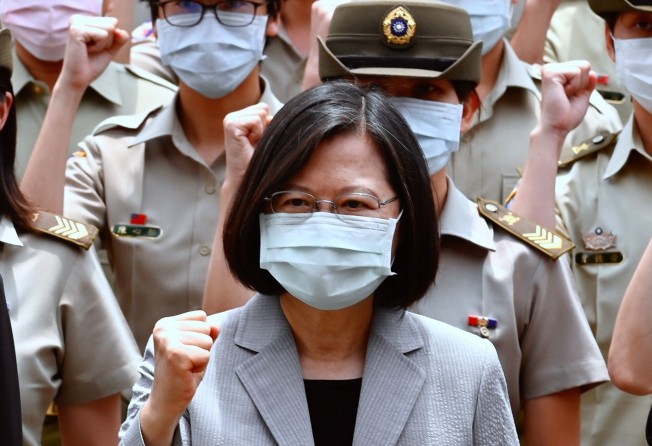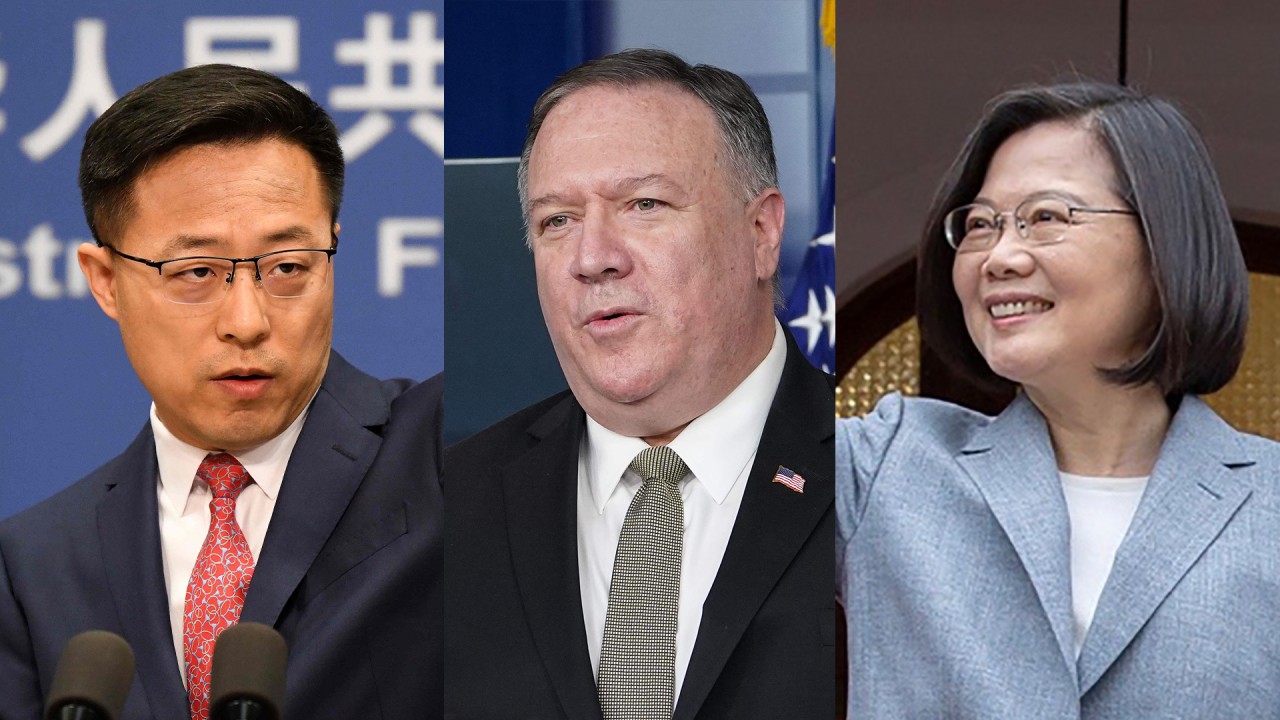Military force ‘last resort’ in US-China tensions over Taiwan
- National People’s Congress deputy and leading academic says calls to take island by force no help to cross-strait relations
- Peaceful reunification preferred but Beijing must ‘be alert’ for any moves towards independence

Tensions with the US over Taiwan are at boiling point, but the use of military force will remain a last resort for China, a leading researcher in Taiwan studies said on the sidelines of the National People’s Congress in Beijing.
Li Yihu, head of the Institute of Taiwan Studies with Peking University and an NPC deputy, said Taiwan was a “potential tipping point” for China-US relations, although it remained unknown whether it would escalate to an open collision.
“The US will further look to the strategic value of the Taiwan issue in containing China, and will play the Taiwan card frequently over a long period of time, just as in the current situation,” Li said. “The Taiwan Strait is indeed the main field for China-US rivalry and contention.”
The Covid-19 pandemic has further plunged already deteriorating relations between Beijing and Washington, with tensions widening from a blame game over the origins of new coronavirus to multiple fronts, including trade, hi-tech, military, security, Hong Kong and Taiwan.
In late March, US President Donald Trump signed into law the Taiwan Allies International Protection and Enhancement Initiative Act (TAIPEI Act) – an elevated level of support for Taiwan’s international recognition rarely seen since Washington cut diplomatic ties with Taipei in 1979.
The US also led a campaign for Taiwan to be granted access the World Health Organisation and, in recent months, has increased the numbers of American warships and military aircraft in the waters near Taiwan.
China claims Taiwan as part of its territory and views any pro-independence activity as contrary to its core national interests. Beijing has threatened a military operation for reunification if Taipei seeks independence.
Earlier this month, there were debates on the mainland over whether Beijing should take advantage of the pandemic to reunite with Taiwan by force but Li said Beijing would stick to the principle of peaceful reunification, and a military option was only a last resort.
“The policy regarding Taiwan will not be directly altered by public opinion, especially emotional opinion,” he said. “If the voices calling to take back Taiwan by force keep elevating, it would not be positive for cross-strait relations.”
Whether Taiwan becomes a flashpoint for China-US tensions will be determined by other factors, he added, such as the effects of virus controls, domestic economic and political situations, and the attitudes of other major powers and neighbouring countries.
In her inauguration speech on May 20, Tsai Ing-wen began her second term as Taiwan’s president with a vow to defend the island from threats, and said Taiwan would not accept Beijing’s “one country, two systems” proposal for cross-strait unification.
Two days later, when Premier Li Keqiang read out the government work report to the annual legislative sessions in Beijing, the references to peaceful reunification had been dropped. Also not mentioned was the 1992 consensus, through which both sides tacitly agree there is only one China but have different interpretations on what this means.
Despite the change, Li Zhanshu, chairman of the Standing Committee of the National People’s Congress, later returned, in his address, to Beijing’s decades-long rhetoric on Taiwan. The change in tone of the government work report was interpreted as a warning to Tsai’s independence-leaning policy.
Li Yihu said the central government would continue to stick to the principles of the 1992 consensus, but indicated there would be a more flexible and targeted approach.
Tsai is under growing pressure from the self-ruled island’s hardline camp to push for constitutional change to reflect an independent status – a move Beijing sees as a prelude for the island to declare formal independence from the mainland.

02:47
China warns US of ‘strong response’ regarding Taiwan, saying island’s independence is 'dead end'
Li noted that Tsai had made a “compromised attempt” to change the official name of the island and said it was an indication of a move towards independence, which he warned would cast “uncertainties” over the cross-Strait ties.
It is still “a political stalemate and a confrontation which carries detonators [to cross-strait tensions],” he said.
Li said Beijing should remain alert to any push by the Tsai administration towards independence, be vigilant against any “radical independence” movements on the island, and be aware of the possibility of a new crisis if the two trends mixed.